

Wellness Exams
No Need To Worry, Our Veterinary Staff Has Your Pet Covered
Pet health begins with preventative healthcare. Semi-annual veterinary exams ensure that your pet’s health is always professionally monitored. Santa Clarita Animal Hospital generally recommends pets receive two exams per year, so we have the chance to diagnose harmful diseases early. The earlier disease or illness is caught, the more successful treatment is, keeping your pet healthier and happier longer.
Santa Clarita Animal Hospital’s physical exams comprehensively assess every aspect of your pet’s health. Standard veterinary exams at our hospital include:
When you come in for your pet’s wellness exam, talk to your veterinarian about any concerns you have regarding your pet’s health and make sure to take note of any behavioral changes. Those are often signs of underlying health issues.


Senior Animal Care
Like they do with people, senior animals’ medical needs change over time. Because pets age at nearly seven times the rate humans do, they are considered senior pets once they reach age seven or eight. As your cat or dog gets older, they require different nutrition programs and exercise routines to become more susceptible to various diseases.
Common age-related diseases we treat and manage at Santa Clarita Animal Hospital include:
Separating the natural aging process from emerging medical disorders becomes increasingly difficult with senior pets. Routine veterinary visits are the best way for our veterinarians to establish a pet’s baseline health and allow us to identify and treat problems early on. The ASPCA recommends twice-annual exams for older pets to ensure pets are aging normally.
Santa Clarita Animal Hospital’s veterinarians educate pet owners about what to expect from and prepare for elderly animals. Help your pet maintain a comfortable life by adjusting feeding and exercise as needed.
We are always available to answer questions you may have about your aging companion. Schedule an appointment at Santa Clarita Animal Hospital to learn more about how we can help your senior pet live their longest, healthiest life possible with you.

Surgery
Surgery is an effective way to treat many severe injuries and disorders. Santa Clarita Animal Hospital is proud to offer state-of-the-art surgical facilities and equipment. We continue to implement innovative surgical techniques and technologies to remain at the forefront of veterinary medicine. Our hospital provides many surgical services, from standard spaying and neutering to more advanced, specialized procedures.
Surgery specialties at Santa Clarita Animal Hospital include:
Patient safety and comfort are our main priorities during all operations. Santa Clarita Animal Hospital’s experienced veterinary anesthesiologists provide skilled pain management during and after all surgical procedures, ensuring that your pet recovers quickly and with no pain.
Our veterinary team educates you throughout the surgical process, giving you the tools to make informed decisions regarding your pet’s treatment options. We understand that surgery is a stressful time for any owner, and we are available every step of the way to answer questions and put your mind at ease.
If you think your pet may need veterinary surgery, please get in touch with your Santa Clarita Animal Hospital veterinarian to schedule an introductory consultation.


Parasite Control
Get rid of those pesky critters
Pets are easy targets for parasites and small insects. Common parasites like fleas, ticks, and heartworm-carrying mosquitoes feed on pets. Potentially infecting them with many dangerous diseases at the same time. Discover how these tiny pests can cause significant problems and learn how to prevent them.
Fleas
These bloodsucking insects feed on mammals and lay eggs in their fur. Fleas can transmit tapeworms and murine typhus and can cause dermatitis and anemia. One flea can reproduce nearly 50 times a day. Flea infestations often spread throughout the home quickly, which makes them tough to get rid of.
Ticks
Ticks lurk in shrubs and tall grass, feeding on mammals’ blood. Although they are nearly microscopic, ticks are some of the most potent dangers to your pet’s health. A single tick bite can transmit a host of potentially fatal diseases, including:
Although it’s rare, ticks can transfer from animals to humans, so ticks are threats to your whole family. Special care should be made to inspect your pet, and yourself, after any woodland activities.
Heartworm
Heartworm-carrying mosquitoes represent a lethal danger to your pet. When an infected mosquito bites your pet, it transmits heartworm larva. The larva then slowly develops and makes its way to the heart. Once in the heart, it multiples within your pet’s pulmonary artery, leading to constricted blood flow, heart disease, and, in advanced stages, major organ failure.
Internal Parasites
We recommend annual fecal testing for all our patients. Many pets are born with internal parasites passed to them through their mother, but pets can easily pick them up in adulthood, from going on walks, hikes, drinking stagnant water from pools, ponds, lakes, or fountains, meeting new dog friends, or even in our backyard. Internal parasites cannot be seen by the naked eye, and many of our pets may be walking around with internal parasites without us knowing or seeing any symptoms. The most common internal parasites seen in our pets are roundworms, whipworms, hookworms, tapeworms, and protozoa, such as giardia and coccidia.
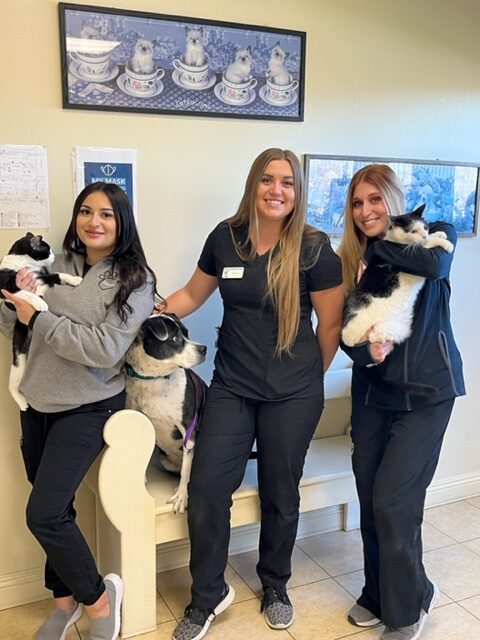

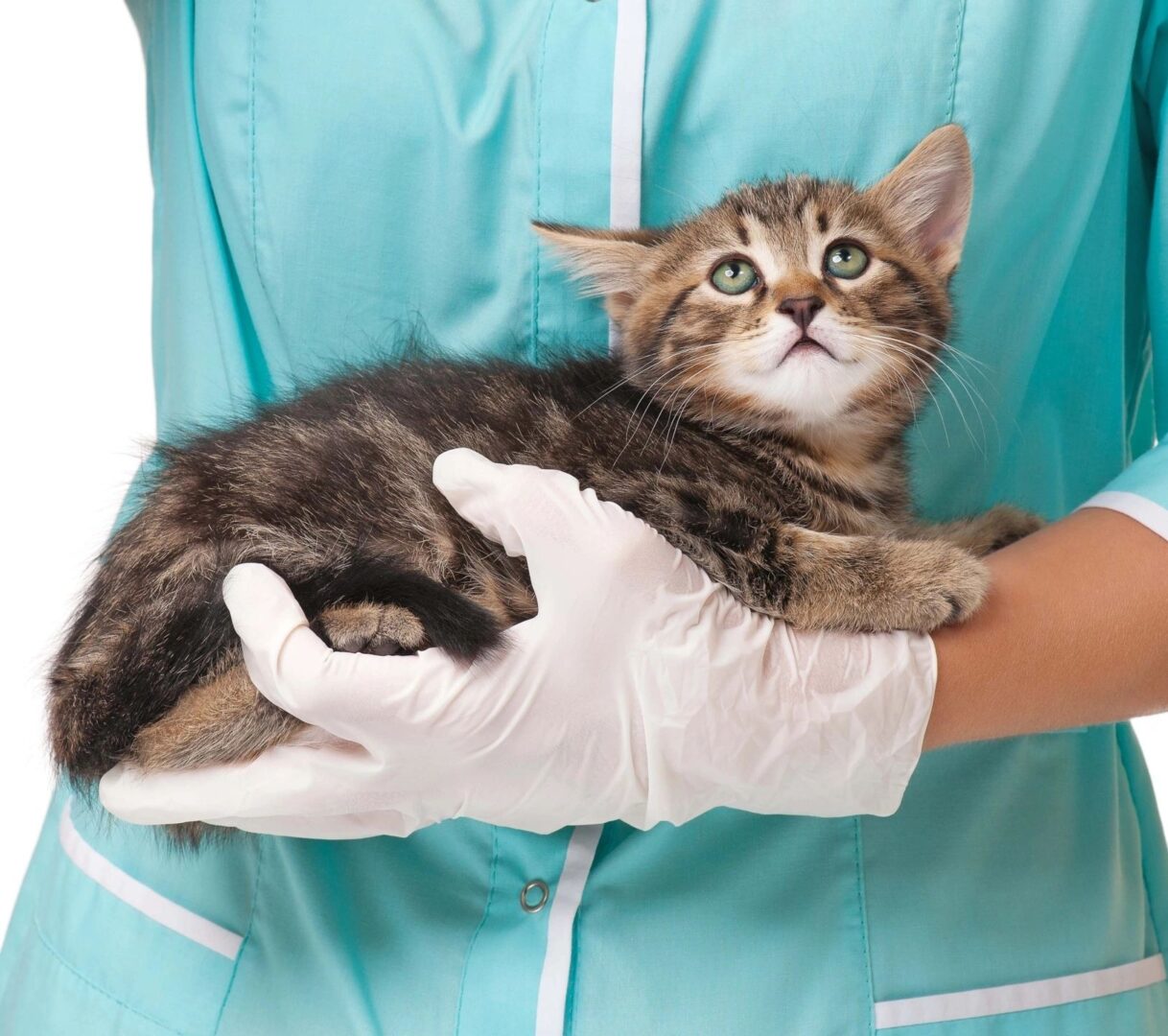
Parasite Prevention at Santa Clarita Animal Hospital
Regular application of anti-parasitic medication is the best way to keep your pet free of nasty parasites. Talk with your Santa Clarita Animal Hospital veterinarian to determine the best parasite control products for your pet.
Santa Clarita Animal Hospital’s parasite prevention plans include:
Please contact your Santa Clarita Animal Hospital as soon as you can if you suspect that your cat or dog is already infected with parasites.

Ultrasound
Ultrasounds are powerful diagnostic tools that create real-time images of the inside of an animal’s body. This composite image reveals essential information about internal processes, including the circulatory, skeletal, and gastrointestinal systems, helping identify disease, blockages, and internal injury.
Ultrasounds broadcast high-frequency sound waves that reflect off your pet’s internal structures. A small probe held against the skin collects the returning signals to create an inner body image. This real-time image is most commonly used to examine abdominal organs like the stomach, kidneys, liver, spleen, and gallbladder. Echocardiograms ultrasounds of the heart provide precise information about heart valves, blood flow, chamber size, and contractions. This tool is essential when assessing overall heart health and treating cardiovascular disease. Because ultrasounds don’t require radiation, they are also used to monitor pregnancies and fetal health in breeding pets.
When used in conjunction with other diagnostic tools like X-rays, ultrasonography can detect a broad range of abnormalities, including cardiovascular disease, skeletal fractures, some forms of cancer, soft tissue damage, foreign bodies, and organ disease. Ultrasounds are entirely painless and non-invasive, and they are among the most precise diagnostic tools in the veterinary industry.
Santa Clarita Animal Hospital employs advanced imaging technologies operated by board-certified veterinary radiologists, guaranteeing our patients’ highest quality of care.
To learn more about ultrasonography and other diagnostic tools available at our veterinary hospital, please contact your Santa Clarita Animal Hospital today!
Radiology



Our laboratory facilities host precise diagnostic equipment for preventative care and early disease detection.
Veterinary diagnostic imaging creates composites of the internal body, and veterinarians use these images to discover disease or injury. Santa Clarita Animal Hospital employs advanced imaging technologies operated by board-certified veterinary radiologists, guaranteeing our patients’ highest quality of care.
Radiographs, also known as X-rays, direct electromagnetic radiation toward the body to highlight objects within. These popular tests can detect abnormalities, including skeletal fractures, soft tissue damage, foreign bodies, and dental disease. Radiography remains one of the most popular and accurate non-invasive diagnostic tools in the veterinary industry.
Some specialized radiology procedures may require anesthesia. Orthopedic radiographs and contrast studies, for example, require the patient to remain completely still for long periods, necessitating sedation in most cases. The duration of sedation is usually short, and patient recovery is swift. A board-certified veterinary anesthesiologist oversees all of these procedures.
Diagnostic imaging services are available via referral from your Santa Clarita Animal Hospital veterinarian.
Euthanasia Services
Deciding when it’s time for your pet to cross the rainbow bridge is the most difficult decision as a pet owner. Our veterinarian’s and staff are here to help you through every step of the way.
What is the quality of life?
Quality of life Is a term to discuss an aging pet’s day-to-day life and lifestyle. It is to discuss your dog’s happiness and health. It is to determine if your pet is getting older or if they are suffering.
Pain
Controlling your pet’s pain and ensuring they are about to breathe correctly is an absolute necessity. Medications, supplements, and surgeries are just some of your options. Talk to your veterinarian about options for Physical therapy and chiropractic adjustments.
Hunger
It is important that your pet eats. If your pet cannot eat or doesn’t want to eat, discuss with our veterinarian alternative diets that may be more appetizing to your pet. Consider blending and liquid diets for pets who have trouble chewing or eating. Appetite stimulants are also available by prescription.
Hydration
Keeping your pet hydrated is very important. Administering Fluid under the skin can help assist pets who are not keeping themselves properly hydrated or for pets who are experiencing Kidney disease and other aliments.
Hygiene
It is essential that an aging dog can be kept clean. Keeping their coat free of mats, debris and filth is essential. If your pet cannot leave its environment after defecating and urinating, it is important to keep those areas clean. Ensure you are bringing your pet to their designated bathroom area often. Provide kennel pads and clean bedding quickly after an accident happens. Bedridden pets must be moved and rotated frequently to ensure they don’t get bed sores.
Happiness
Pet’s should still experience Joy & Mental Stimulation. Making sure your pet is still engaging in life is important. If your pet avoids housemates contact, hiding, or retreating, it would indicate that your pet is not experiencing joy or mental stimulation or could still be in a great deal of pain.
Mobility
If your pet can no longer move around, purchasing a sling, harness, or pet wheelchair may be required. Mobility devices allow a dog to stay active. This is particularly important for bigger dogs that cannot simply be carried from place to place. Mobility and hygiene go together when a dog is bedridden. Your veterinarian is an essential resource when working through mobility issues.
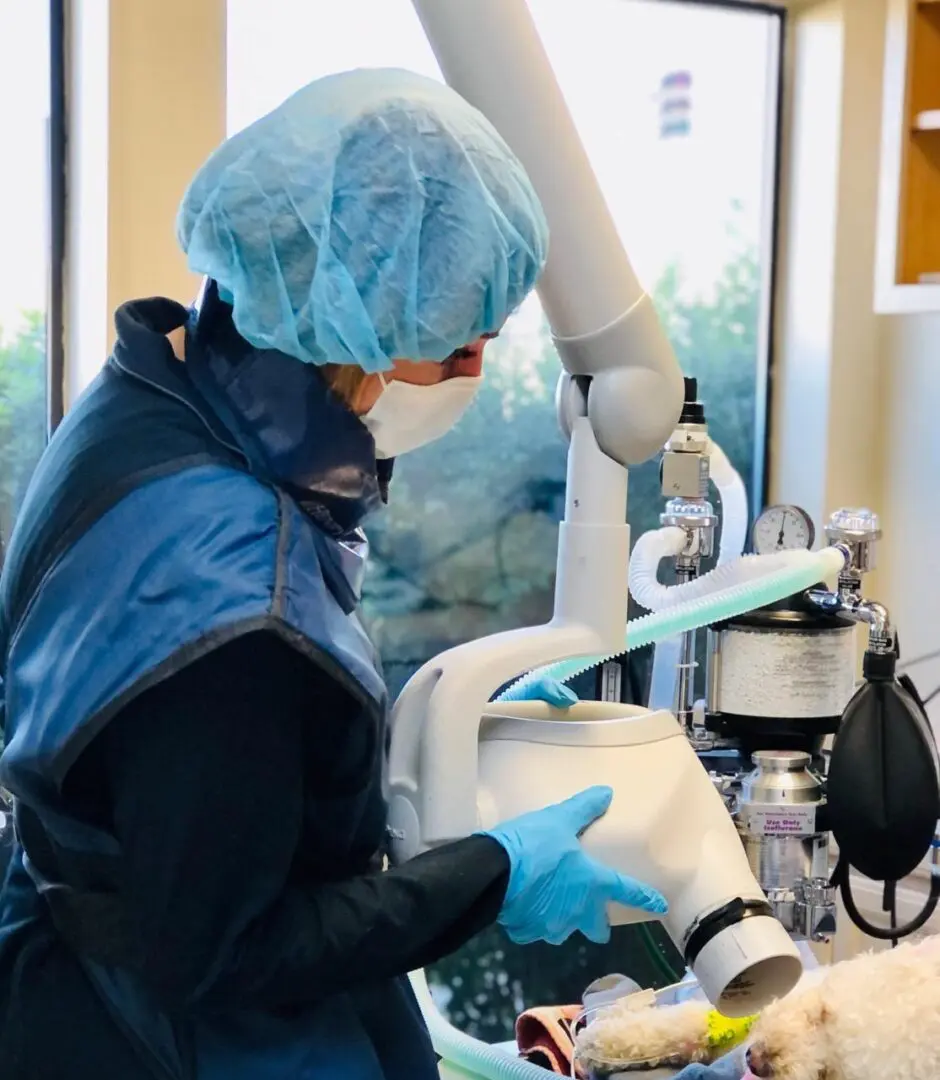
More good days than bad
When there are too many bad days in a row, or if the dog seems to be turned off to life, quality of life is compromised.
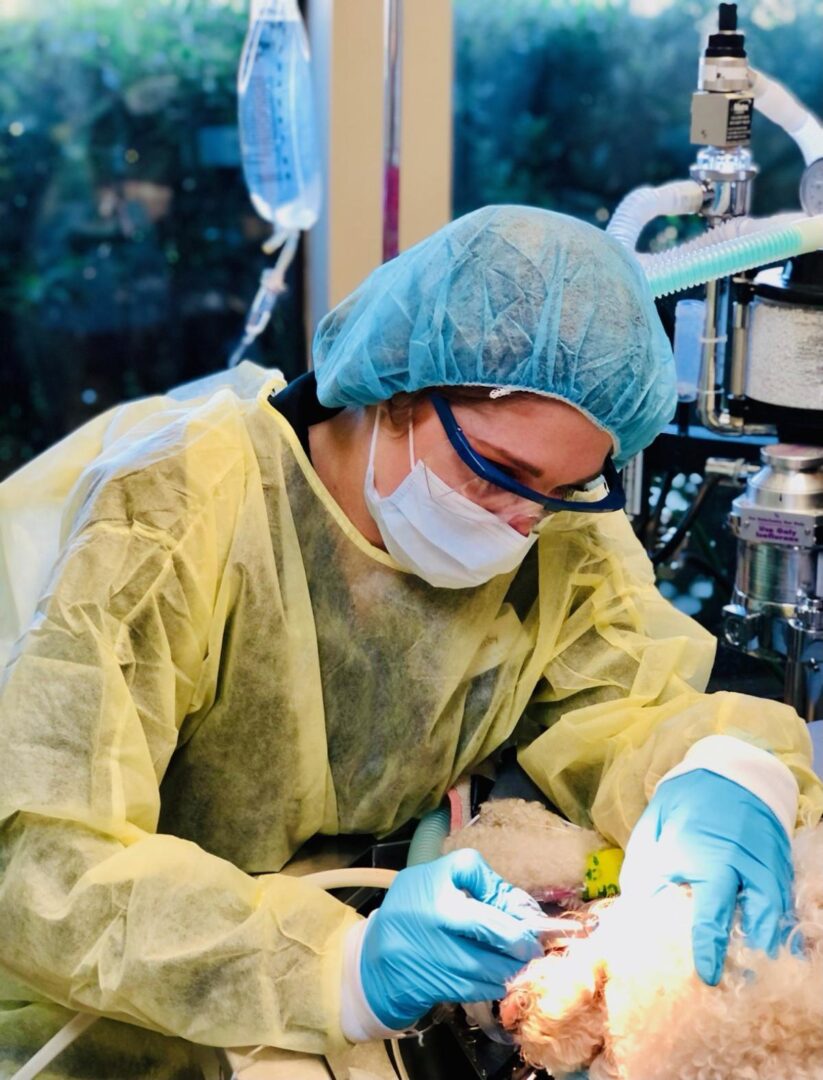


What can you do?
Call and schedule quality of life appointments with one of our veterinarians. You can talk to them about your concerns and questions. Our veterinarians can discuss options for pain control, anxiety relief, further diagnostics & treatments for their ailments, and much more. Our veterinarians can’t tell you when it’s time; they can make suggestions based on how comfortable your pet is, but only you understand their true level of happiness.
We recommend keeping a journal as your pet starts to show the signs of aging. Note down the good and bad days so you can see the pattern your pet is experiencing. It will help as you get closer to saying goodbye to see more bad days checked off in your journal. Here is an example of a daily journal provided by Lap of Love: If you don’t want to use a journal, you can simply put a green or red dot on each day of the calendar to represent good and bad days.
There are many questionnaires online to fill out when you are worried their quality of life is failing; here are some links to explore
Quality of Life Calculator
How Do I Know its “Time”

When it’s “time”
If your pet’s quality of life is low and you have decided its time to move forward with euthanasia, here are something to consider:
Pets have the option for both in-home and in-office euthanasia’s
We don’t offer in-home euthanasia, but we highly recommend Dr. Yamamoto with PeacefulPets.
If you have decided you would like to come into our office, just call our hospital and schedule an appointment for whenever is best for you and your family.
We recommend you spend quality time with your pet before the appointment. Let them try and enjoy life as much as they can. Buy them that cheeseburger if they are still eating, let them sit at the park and watch the people or simply spend some extra time snuggling on the couch with them.
When the time comes to enter our office, you will be escorted directly into a room for you and your family to be in. You can bring your bed or blanket, or we can provide your pet with one. If your pet soils their bed or blanket, we can wash them and return them to you later or donate them to the hospital to bring other pets comfort. We recommend not to remove collars from your pet during this time, and it’s important for them to feel comfortable and not worry about changes to come. After your pet has crossed the rainbow bridge, we suggest taking their collar as a keepsake.


After Life Services
We offer both Private and Communal Cremations. All handled by a third party called West Coast Pet Memorial.
For Communal Cremations, you do not receive ashes back, but you can still request paw prints or fur clippings to be returned to you
For Private Cremations, there is an abundance of urns and special custom memorial pieces to choose from.
Grieving
After the loss of your best friend, grieving is a normal and natural occurrence. Don’t be afraid to reach out for help; visit the sites below for additional help
Pet Loss Grief Support Chat Room
Support Forum
Pet Loss Grief Support Hotlines
Ten Tips on Coping with the Loss of your Pet

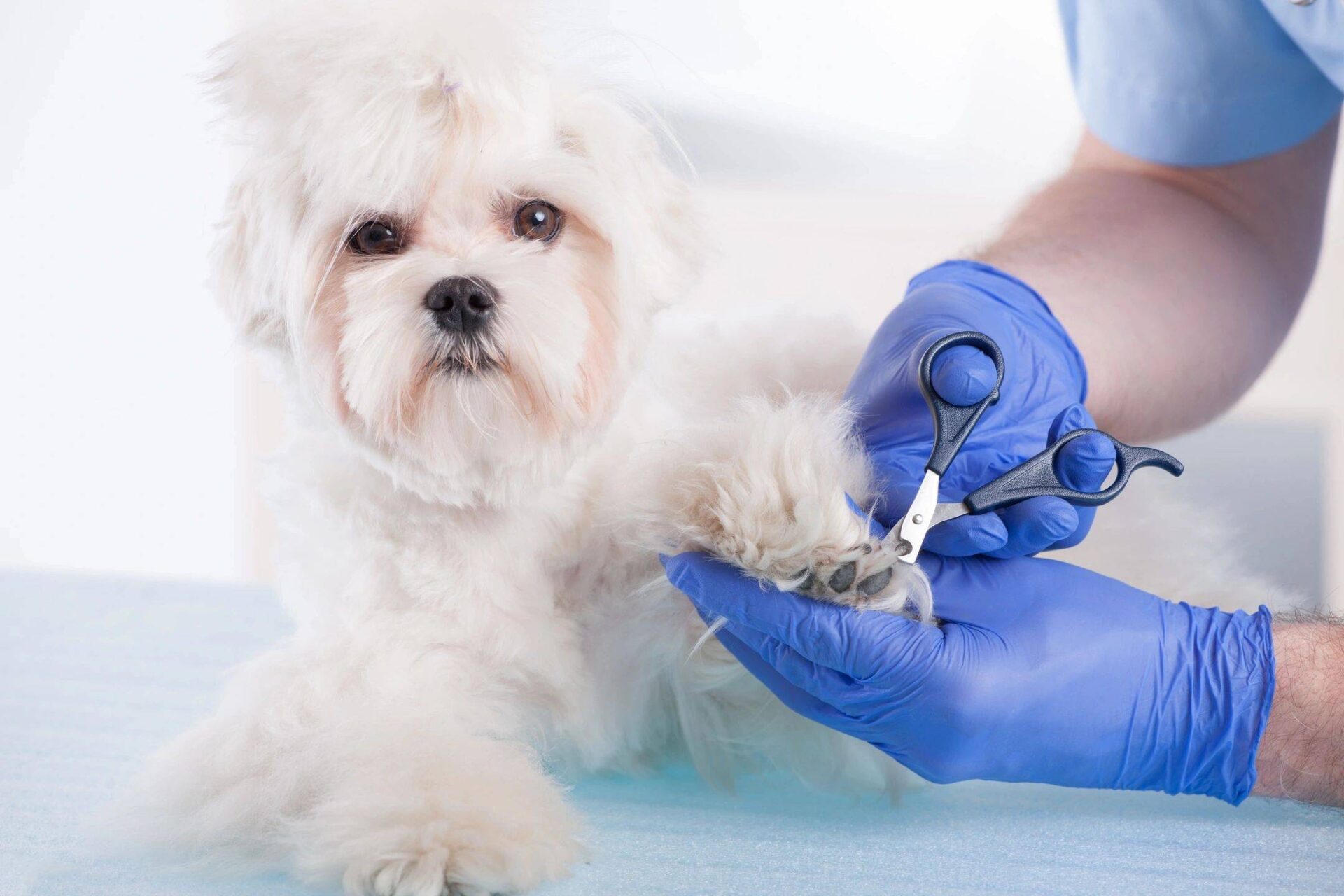
Emergency Care
Santa Clarita Animal Hospital is a general practice, not an emergency center. However, we will try and take in emergencies as often as possible.
If your pet is experiencing an emergency, call our office before coming. That way, we can tell you if we have enough staff, time, and equipment for your pet’s emergency. Emergency visits are subject to a $118 Emergency Exam Fee.
Please know if we refer your pet to another clinic because we don’t feel we can provide the care necessary for your pet.
If your pet experiences an emergency when Santa Clarita Animal Hospital is closed, we recommend contacting Animal Specialty Group or Access Animal Hospital.

Animal Specialty Group
Access Animal Hospital

